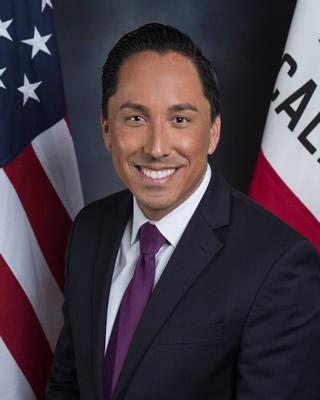San Diego Mayor Todd Gloria has sharply criticized the Trump administration, describing its political approach as largely ‚Äúperformative‚Äù and ineffective. In a recent interview, Gloria lamented the federal government’s failure to deliver tangible results, accusing the administration of prioritizing showmanship over substantive policy actions. His remarks come amid ongoing tensions between city leaders and the federal government on issues ranging from immigration to infrastructure funding. This article examines Gloria‚Äôs pointed critique and the broader implications for local-federal relations under the Trump administration.
San Diego Mayor Criticizes Trump Administration for Lack of Tangible Results
San Diego’s mayor unleashed sharp criticism against the Trump administration’s approach to governance, describing it as largely superficial and ineffective. Highlighting a series of unmet promises and stalled initiatives, the mayor questioned the administration’s capacity to deliver real-world improvements for cities grappling with complex issues like homelessness, infrastructure decay, and public safety. Officials in San Diego noted that many federal engagements seemed more focused on optics rather than substantive policy achievements, leading to growing frustration among local leaders who seek actionable support.
Key concerns raised by the mayor included:
- Lack of follow-through on federal funding commitments promised to urban centers.
- Insufficient response to housing crises that are intensifying in metropolitan areas.
- Performative political gestures that overshadow genuine collaboration efforts.
| Issue | San Diego Impact | Federal Action |
|---|---|---|
| Homelessness | Increased street encampments | Minimal funding allocated |
| Infrastructure | Deteriorating roads, bridges | Delays in grant approvals |
| Public Safety | Rising local crime rates | Limited federal coordination |
Analyzing the Impact of Performative Politics on Local and National Governance
Performative politics has increasingly complicated governance, especially at the intersection of local and national priorities. San Diego’s mayor criticized the Trump administration for prioritizing spectacle over substance, arguing that political posturing often results in stalled policies and delayed responses to critical local issues. This approach, characterized by public gestures designed more for media coverage than practical outcomes, undermines trust in leadership and hampers effective decision-making. Local leaders find themselves navigating a challenging landscape where national administrative actions seem more focused on optics than on delivering tangible benefits to communities.
Key consequences observed include:
- Delayed infrastructure projects due to reallocated federal resources.
- Conflicting priorities between federal mandates and local needs.
- Increased frustration among citizens demanding accountability and progress.
| Impact Area | Effect |
|---|---|
| Budget Allocation | Frequent shifts, causing uncertainty |
| Policy Implementation | Often inconsistent and delayed |
| Public Perception | Growing skepticism toward leaders |
Challenges Faced by Municipal Leaders Amid Federal Administrative Shortcomings
Municipal leaders, such as the mayor of San Diego, are increasingly vocal about the hurdles posed by a faltering federal administration whose policies often border on performative gestures rather than effective governance. These local officials confront a persistent lack of substantive support on critical issues like infrastructure funding, emergency response coordination, and immigration reform. This disconnect leaves cities scrambling to fill the void, frequently without adequate resources or guidance, frustrating efforts to address the pressing needs of their communities.
Challenges emerging from these federal gaps include:
- Delayed approval and release of vital grants
- Inconsistent enforcement of federal regulations
- Reduction in collaborative federal-local task forces
- Communication breakdowns during crises
| Impact Area | Consequence |
|---|---|
| Infrastructure Projects | Stalled timelines, increased local budget strain |
| Emergency Management | Slower federal response, higher risk to residents |
| Immigration Policies | Confusion over enforcement and humanitarian support |
Recommendations for Bridging the Gap Between Political Rhetoric and Effective Policy Implementation
To overcome the persistent divide between political speeches and tangible outcomes, a crucial step is fostering transparent accountability mechanisms. Officials should provide clear, measurable milestones for policy initiatives and regularly update the public on their progress. Engaging independent watchdogs and community stakeholders in monitoring can also reduce instances of performative promises that go unfulfilled. This approach not only rebuilds trust but also ensures that rhetoric transitions into actionable, equitable change.
Additionally, collaboration across party lines and levels of government proves essential in translating broad political goals into effective local solutions. Policies designed with input from frontline communities and experts increase practicality and responsiveness to real needs. Implementing flexible frameworks that allow for adjustments based on ongoing evaluation prevents stagnation and fosters sustainable progress beyond mere political posturing.
Concluding Remarks
As the political discourse continues to unfold, the sharp criticism from San Diego’s mayor highlights a growing frustration with what some see as symbolic gestures rather than substantive policy actions from the Trump administration. This exchange underscores the broader debate over accountability and effectiveness in government leadership—a conversation that remains central as the nation navigates complex challenges ahead.







